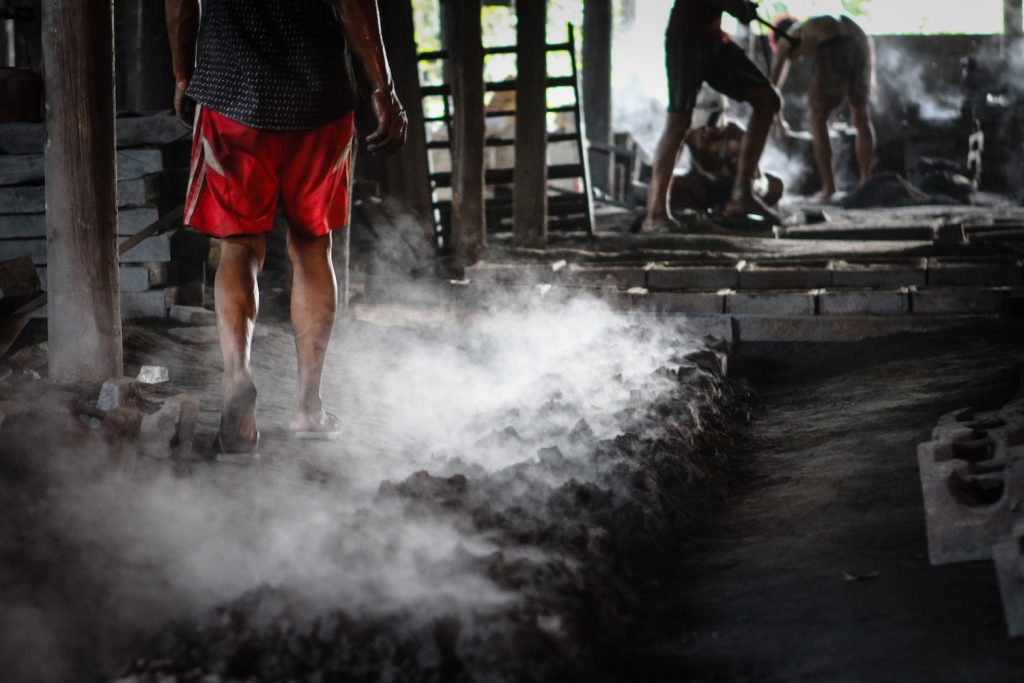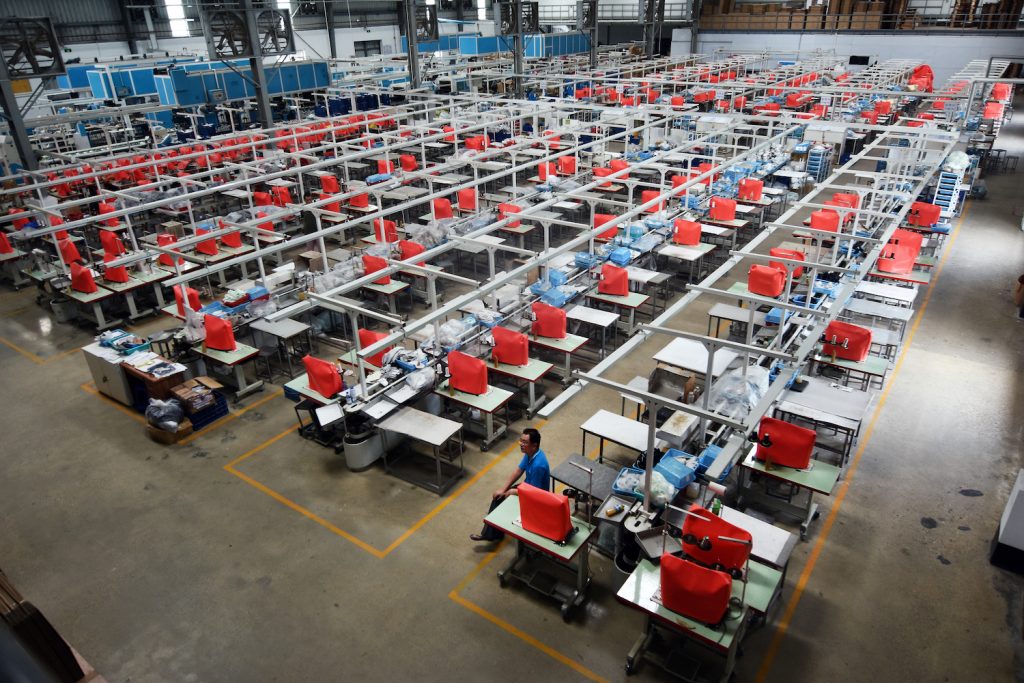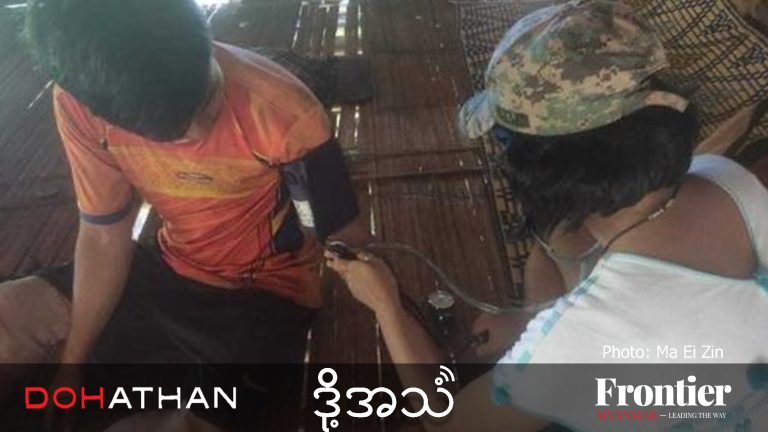Rather than focus on economic growth, Myanmar needs a strong “entrepreneurial state” to lead genuine development and fight rising inequality.
By THANT MYINT-U | FRONTIER
Development should be Myanmar’s number one priority. In the lifetime of today’s children, it has the potential to become a developed country. Combined with measures to fight inequality, finding the right path to development is critical for a successful transition to democracy. It’s also critical for peace – in fact, it’s the missing ingredient. But we need first to reimagine development. And we need a public conversation focused on the future of the economy.
Development is not the same as economic growth. An economy can grow at 5 percent or even 10pc a year and not develop. Myanmar could sell all its remaining forests and grow the economy. Myanmar could double its production of rice for export and grow the economy. Myanmar could invite foreign companies to set up factories and employ Myanmar workers and grow the economy. But this alone will not lead to development. Growth is necessary for development, but development is different from growth.
Development means the structural transformation of the economy, away from a rural, agrarian, low-skilled, low-paid economy to an urban, industrialized, high-skilled, high-paid economy. No country can develop based on agriculture. Even in rich countries that have a relatively large agricultural sector, such as New Zealand, agriculture still accounts for less than 7pc of the economy.
Instead, development means fostering a manufacturing sector and ensuring that local companies – whether state-owned, cooperatives or privately owned – have the capability and institutional culture to produce increasingly complex products. And this in turn means changing mentalities, nurturing expertise in science and technology, and investing in research. It means a qualitative change in what people do and the institutions in which they work. In this way, development is a remaking of society.
Development is not easy. No country has become developed through free markets and free trade. Just a handful of non-Western countries have successfully developed: Japan, South Korea, Taiwan and Singapore, plus the Soviet Union and Israel (if they are counted as non-Western). China may soon join their ranks. Like the United Kingdom and the United States in the 18th and 19th centuries, Asia’s development success stories all protected their manufacturing industries for decades via high tariffs. All included industrial policies – strategies to build the manufacturing capabilities of their own firms. In the 1960s international advisors suggested that South Korea focus on rice production as that was its comparative advantage. South Korea instead chose to focus on steel, automotives, shipbuilding and electronics.
Some of the countries mentioned above developed big private corporations like Daewoo and Samsung in South Korea. Others grew big state-owned companies like Singtel and Singapore Land in Singapore. All focused on exports. Foreign investments were carefully managed to ensure the transfer of technology and the increased productivity of local firms. In all cases the financial system served a national development strategy. All used but were not led by markets. They were instead led by a vision of what they wanted their country to be.
Having the right state institutions is critical for success. This means first and foremost having innovative bureaucracies that can understand global markets, analyse, strategise and coordinate development. What’s not needed is a command economy, or the state picking companies and supporting them come what may. What’s needed is the state as entrepreneur-in-chief: identifying opportunities, experimenting with investments (often against market signals) and shutting down failures, but also nurturing successes and sharing the lessons from those successes. In Japan, Korea, Taiwan and Singapore, the reform of bureaucracies alongside a laser-like focus on education were essential early steps for development.
Myanmar has seen virtually no economic development over the past 150 years. Under King Mindon and the Kanaung Prince, the country tried to develop by using export earnings to send students overseas, by importing technology and by setting up new manufacturing industries. These policies, though, were undermined by British colonialism. Under colonial rule, the economy was all about rice agriculture and the extraction of natural resources. There was no development, only infrastructure for the export of primary commodities and a service economy that catered to elites.
Once British and Indian companies left, there were no Myanmar institutions – no institutional capability – to replace them. After independence, governments tried state-led development but failed, partly because after 1962 development efforts were accompanied by policies of extreme international isolation. Since the 1990s there has been growth but no development, as Myanmar has relied again on the export of primary commodities together with the export of unskilled labour. We need to learn lessons from the rest of the world, but also from Myanmar’s own history.
We also need a far better understanding of the country’s unique political economy – a political economy that has emerged since 1988 across a landscape dominated by both state and non-state armed groups. It is a political economy where privilege and access to violence have constructed and shaped both licit and illicit industries, and created networks of money-making often more powerful than government itself.

There is no time to lose. The COVID-19 pandemic has revealed how vulnerable Myanmar is to international trade shocks and a fall in remittance income. The prospect of global climate change means that if Myanmar is still reliant on agriculture in 10 or 20 years’ time it will easily be overwhelmed. Automation and deglobalisation mean the tried and tested paths to development, based on export-oriented manufacturing, may soon disappear completely.
Over the past decades Myanmar has been consumed by internal conflicts. Over the same period, other countries in the region, most notably China, have become a dozen times richer. An inability to catch up will mean the country becomes increasingly, perhaps irrevocably, under the economic sway of others.
A stronger, more capable, state – an entrepreneurial state – is essential for development. A stronger state is also essential because Myanmar over these past 30 years has become an incredibly unequal society, where the life opportunities of children born to the richest and the poorest are now worlds apart. Only a strong state can address inequality and make possible a fairer society. And as we see during this pandemic, a robust public healthcare system, accessible to all, is essential for everyone’s most basic security.
Myanmar’s most fundamental challenge is creating a stronger state at a time when most people, because of long years of oppression and corruption, want only to see the back of state institutions. The state today provides little in the way of services and its impact on the economy is negligible at best and predatory at worst. But to frame the choice as one between the crony capitalism of the past and a neoliberal future of a minimal state and free markets would be disastrous for this country. It would further entrench inequalities and make impossible the kind of development successes we’ve seen elsewhere in the region.
Development can’t depend on the state as it is – one that’s evolved over decades of dictatorship and civil war. Honest and able bureaucrats today are constrained by the often-venal institutions within which they serve. Effectively managed bureaucracies as well as transparent finances and decision-making are all important parts of the necessary future mix.
But even more important is democracy. A strong state to lead development must also be a democratic state in the broadest sense of the term, accountable to a well-informed electorate, a deliberative democracy that rejects all forms of discrimination and protects and promotes a vigorous media as well as individual rights.
All this is easier said than done. The trick is in the sequencing: identifying the initial institutional reforms (for example the overhaul of a particular part of the bureaucracy) and the initial targets for development (for example a particular manufacturing industry), and then building on success.
The start, however, must be a far more public and informed debate on the future of the economy. Development choices are not technical matters; they are political choices about how people will want to live, and what trade-offs this will involve. We are living in an age of climate change and pandemics, and an age when capitalism and consumerism are being fundamentally reconsidered. Myanmar should be a part of these discussions. Inequality is a policy choice. So too are the scope and nature of markets.
A far richer and more informed debate – on Myanmar’s political economy and its future development options, in light of global experience and fresh thinking – is what will give content to the country’s incipient democracy. To relegate economic issues to technocratic discussion would be a tremendous disservice, weakening any prospects for political advancement.
The continued separation of politics and economics will also undermine peacebuilding. Peace cannot be built on the basis of the state or the political economy as it is. The structural transformation of the economy and the state reform necessary to achieve it – as well as the sequencing of both – should be at the core of peace talks if they are to progress beyond the ceasefires of the past.
Over the past 10 years much hard work has been undertaken and much has been accomplished. Bad economic policies have been rectified and public financing for health and education significantly expanded. Poverty has decreased and living standards have improved for millions of people. But millions more still live the most precarious of lives. There are as well monumental and outstanding issues around land usage, the future of state-owned enterprises, major infrastructure development and, most recently, multi-billion-dollar spending to offset the economic impact of the pandemic. It’s the perfect time to start a new conversation about the economy, to both reimagine development and to strengthen democracy.
Thant Myint-U is the chair of U Thant House and the author, most recently, of The Hidden History of Burma: Race, Capitalism, and the Crisis of Democracy in the 21st Century.







